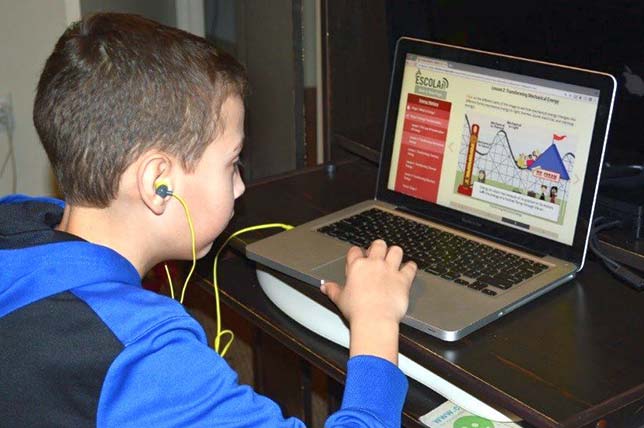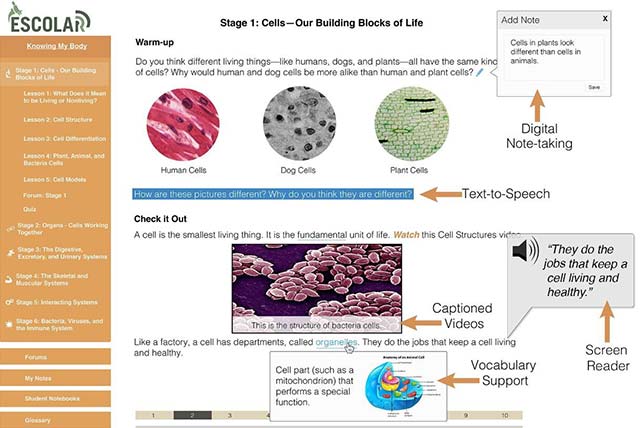Web-Based, Interactive Learning Helps Middle Schoolers Excel in Science
- By Dian Schaffhauser
- 02/12/18

A new study shows that web-based learning tools in the classroom promote science literacy for underachieving students. Source: University of Oregon
Middle schoolers did better with science lessons when they could learn online, watching videos, playing educational games, running virtual experiments and collaborating with classmates. Under-achievers did especially well, with access to pop-up vocabulary definitions, interactive diagrams, digital note-taking, watching videos with captions and access to text-to-speech that allowed them to hear information read aloud to them.
That's what a research project found when it introduced four interactive web-based science units to 2,303 students and 71 teachers who had access to computers or tablets in 13 middle schools in three school districts in Oregon and Georgia. The results have just been openly published in the International Journal of Science Education. The same cohort of sixth-graders was tracked for three years, with schools in each district assigned randomly to either the treatment or control group. Educators in the treatment group received access to technology, professional development on how to use the interactive online resources, instructional content and materials for lab activities.
The science units designed for the project aligned with the Next Generation Science Standards for grades 6, 7 and 8. The four units covered 10 to 14 weeks of daily instruction and included:
- Knowing My Body (life science);
- Caring for Our Planet (life science);
- Our Place in the Universe (earth and space science); and
- Energy: Going Beyond the Sports Drink (physical science)
Teacher resources offered detailed lesson plans, ideas for how to scaffold the activities onto background knowledge, student assessment reports and tables that showed how each unit aligned with NGSS and state learning standards.

These e-Text supports help students who struggle to improve their science learning. Source: University of Oregon
The control group teachers were asked to teach "as usual," using the curriculum, textbooks, technology and other resources they normally used to teach the same concepts.
According to the researchers, students with learning disabilities in the treatment group improved 18 percentage points on assessments of science knowledge from pre-test to post-test; and English language learners increased 15 percentage points. Learners in the control group who were taught using the traditional methods showed just five points of gain.
"These significant findings demonstrate that the online curriculum was effective in improving science knowledge for students who struggle with science," said Fatima Terrazas Arellanes, principal investigator on the project and a research assistant professor in the College of Education at the University of Oregon, in a prepared statement. "Well designed instructional technology really works to lessen the science literacy gap among diverse groups of learners. Technology offers an engaging and motivating environment for learning, and we are just beginning to understand how we can use it effectively to support students with learning disabilities and English language learners."
Going forward, she noted, the challenge will be for researchers to develop more evidence-based online tools that teachers can use in their classrooms. The outcome could be more struggling students who are among "marginalized and under-represented" groups being drawn into STEM fields. "Due to their unique situations and cultures, English learners and students with learning disabilities offer valuable insights and perspectives that could help address major world problems related to science," the report concluded.
The results are openly available on the International Journal of Science Education website.
About the Author
Dian Schaffhauser is a former senior contributing editor for 1105 Media's education publications THE Journal, Campus Technology and Spaces4Learning.